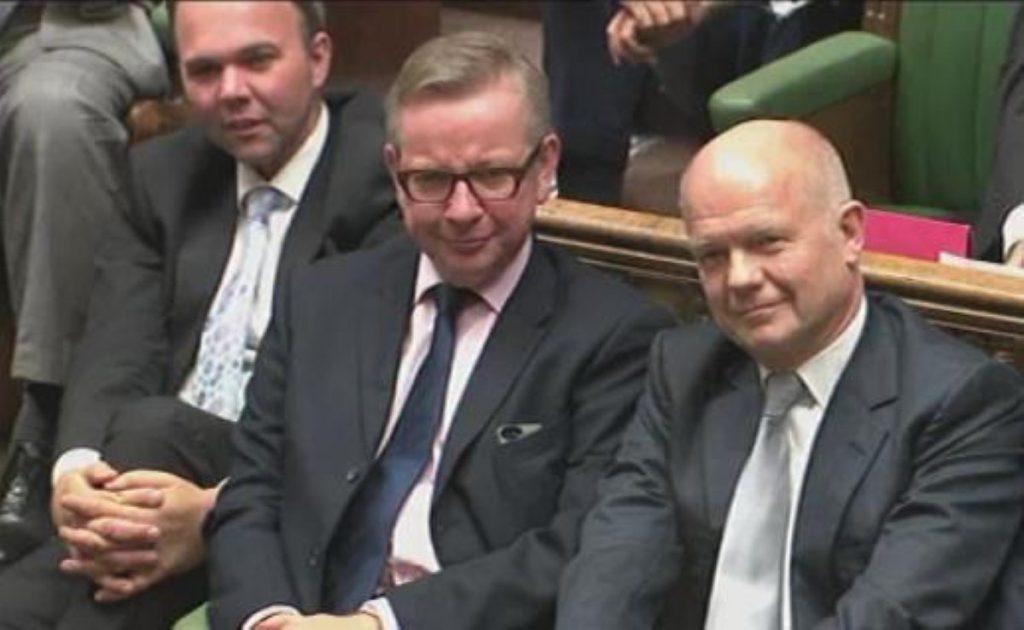By Andrew Neilson
So farewell, Michael Gove. There was always something slightly unreal about one of the recognisable stars (for some, hate figure) of the Cameron government occupying the top seat at the Ministry of Justice, let alone having them talk eloquently of prison reform. Neither the department, or its prisons, tend to attract political glamour – let alone a lightning-rod figure like Michael Gove. At the Howard League, where we pay attention to such things, it was soon noticed that our minister was frequently in the news – often, it has to be said, talking about things that had nothing to do with his departmental brief.
Gradually, however, Gove began talking about prisons and reform. As I predicted the day following his appointment on this very site, it soon became apparent that he struck a very different figure from his predecessor, Chris Grayling. To begin with, he actually listened to the sector. He revitalised a humane rhetoric around crime and redemption and allowed journalists and cameras into prisons to report on the shocking failures to be found behind bars. Hope was in the air for reformers. The high watermark was probably a sunlit April afternoon in All Souls College, Oxford, where Gove outlined his ideas for prison reform in frank fashion to a receptive audience of academics. Unfortunately, things went rapidly downhill after that.
So there will be mixed feelings as to Gove's legacy in what amounted to only fourteen months at the Ministry of Justice. As a fellow Scot, I am reminded of a great tradition of 'lost leaders' in Scottish history and political culture, from Labour's John Smith to Bonnie Prince Charlie. Is Gove one of those lost leaders to the world of prison reform, or a man whose rhetoric far outstripped his capacity to force through real and meaningful change?


That is a question now left unanswered. Certainly he was clearing out senior officials at the Ministry of Justice and its agencies, because they were not seen as fit to deliver his vision, only to see the visionary himself self-combust over Brexit and its aftermath. A White Paper and Bill still felt like distant dots on the horizon at the time of Gove's defenestration from Cabinet. His concept of reform prisons remains fundamentally untested, and the question of whether this was real institutional reform or a distraction from the underlying pressures on the system will now be taken up by his successor, Liz Truss. Given the degree to which Gove was driving these ideas personally, it seems unlikely that quite the same vigour will now be applied. Forces of bureaucratic inertia, never far from the world of prisons, will be emboldened by the removal of Michael Gove.

The case against him rests largely on the shocking statistics which spell out the state of the prisons he presided over. There were more homicides behind bars in 2015 than in any other year on record. Rates of suicide are at a ten-year high. All the indicators of violence and human misery have seen sharp rises. Yes, it can be argued this was the legacy of the Grayling regime, but ultimately Michael Gove leaves office with the same broad trends still in place.
There are nonetheless, a few solid achievements we can point to, albeit several involve simply repairing the harm done by Chris Grayling. The changes allowing friends and family to send prisoners books directly, one of the first things he did in post, were to a degree cosmetic given Grayling had already conceded to a High Court ruling on the issue. Nobody could escape the symbolism, however.
More important was his scrapping of the criminal courts charge and his relaxation of stifling restrictions on the use of temporary release for prisoners to work and learn in the community. His moves towards governor autonomy are broadly to be welcomed in a sector which is far too centralised around directives from Whitehall. And perhaps his most concrete positive step was to install the former prisons inspector Nick Hardwick as chair of the Parole Board, charging him to deal with those prisoners still languishing on the unjust and abolished indeterminate sentence for public protection
It will be an early marker for reformers to see the enthusiasm with which Liz Truss supports the vital work of Hardwick on this issue. As for her predecessor, it remains a case of what might have been. Lost leader or not, in true Scottish tradition I will most likely raise a wee dram over the weekend to the fascinating yet fleeting era of justice secretary Gove.
Andrew Neilson is Director of Campaigns at the Howard League for Penal Reform
The opinions in politics.co.uk's Comment and Analysis section are those of the author and are no reflection of the views of the website or its owners









